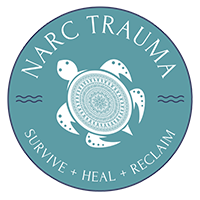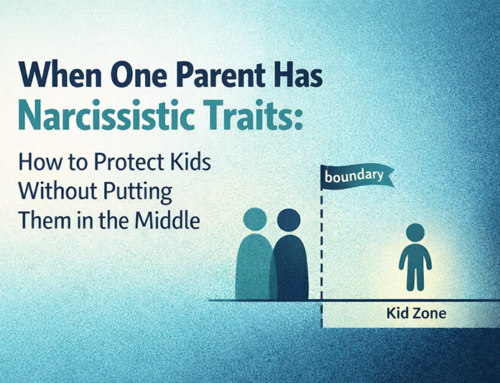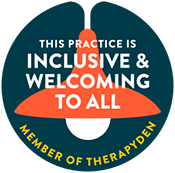Understanding and Managing Triggers Following A Relationship With A Narcissist

By Brenda Stephens, Licensed Professional Clinical Counselor
Navigating the emotional aftermath of a relationship with a narcissist can be overwhelming, especially when dealing with triggers that evoke painful memories and emotions. Understanding these triggers is a crucial step in the healing process. In this guide, we’ll explore what triggers are, how they relate to narcissistic abuse, and practical steps you can take to manage them for a healthier emotional journey.
Defining Triggers and Their Role in Healing
Triggers are psychological stimuli that remind a person of past trauma, and for those recovering from a relationship with a narcissist, they can manifest in many forms. Often, triggers can be as simple as a song, a phrase, or even a specific smell that transports you back to an event filled with manipulation or pain. When you experience these triggers, it can lead to overwhelming emotions, making the healing process feel like an uphill battle. Understand that experiencing triggers is a common response, tied deeply to your trauma history. The first step towards healing is recognizing that these feelings are valid and part of your recovery journey.
Through self-awareness, you can begin to identify which situations or stimuli evoke strong reactions. Keeping a journal can be incredibly beneficial. Documenting when you feel triggered allows you to reflect on the circumstances surrounding these feelings. Are there specific people or environments that instigate these responses? By taking note of these patterns, you can foster greater understanding and self-compassion. This process not only helps in tracking your emotional responses, but it also grants you the power to choose effective coping mechanisms for future encounters.
Understanding Narcissistic Abuse and Coercive Control
Narcissistic abuse often involves a complex array of emotional manipulation and control, which can have lasting effects long after the relationship has ended. Coercive control, a hallmark of such abusive dynamics, can lead to feelings of confusion and self-doubt that linger even in safe spaces. This understanding is crucial, as recognizing the insidious nature of coercive control can help you navigate triggers connected to memories of feeling trapped or powerless. The aftermath of narcissistic relationships may leave you grappling with a diminished sense of self, as the abuser often undermines your confidence over time.
Engaging in conversations about your experiences or seeking therapy can prove incredibly helpful. Professionally guided discussions about narcissistic abuse can shed light on the patterns you may not yet recognize. This knowledge empowers you to disentangle your own identity from the web of control spun by the narcissist. With every revelation, you reclaim pieces of your narrative, fundamentally shifting how you engage with triggers tied to your past.
Identifying Common Triggers After Leaving a Narcissist
Common triggers following a relationship with a narcissist can be numerous and varied. They may include specific phrases used by the abuser or reminders of situations where you felt belittled. Everyday occurrences, like encountering someone who resembles your ex, may evoke a sense of panic or distress. These triggers can feel like unexpected landmines, catching you off guard and pulling you back into painful memories. Acknowledging these triggers is an essential part of your healing process, allowing you to face each trigger with the empowerment that comes from increased awareness.
Consider discussing these triggers with trusted friends or a support group. Sharing your experiences with those who understand can ease the burden and reduce feelings of isolation. Additionally, turning those conversations into creative outlets, such as writing or art, can help in processing complex emotions that often accompany these triggers. By owning your narrative and finding ways to express your feelings, you can create pathways for healing and growth.
Practical Strategies for Managing Triggers
To effectively manage triggers, it’s important to develop a comprehensive set of coping strategies that resonate with you personally. One approach is to use grounding techniques, which serve as powerful tools to bring your focus back to the present moment when you feel overwhelmed. Simple deep breathing exercises, mindfulness practices, or even carrying a comforting object can provide immediate relief during a trigger episode. It’s all about discovering what works for you and gives you that moment of calm amid chaos. Establishing a safety plan can significantly boost your confidence, too. This plan can be as straightforward as creating a list of known triggers and outlining specific action steps to take when they arise. By preparing in advance, you give yourself the tools to face triggers head-on, ultimately aiding in your healing from narcissistic abuse.
Creating a seamless routine that incorporates these techniques can make managing triggers feel more natural. When triggers strike, knowing you have specific strategies at your disposal can alleviate anxiety. Additionally, talk about your triggers with friends or loved ones who can jump in to provide support. Sometimes, merely verbalizing what you’re experiencing can offer immense relief, serving as a reminder that you are not navigating this journey alone.
The Importance of Self-Care in the Healing Process
Self-care is not a luxury; it is a necessity, particularly in the aftermath of narcissistic abuse. By intentionally focusing on your well-being, you create a buffer against potential triggers and emotional distress. Simple practices like establishing a daily routine, engaging in enjoyable hobbies, or taking time to relax can significantly enhance your mental health. Prioritizing sleep, nutrition, and physical activity also has a positive impact on your overall resilience. Treating yourself with kindness and patience is the cornerstone of recovery.
When triggers occur and emotions run high, it’s crucial to practice self-compassion. Healing is an often nonlinear process filled with peaks and valleys. Accepting that it’s okay to feel overwhelmed at times reminds you of your progress. Acknowledge your courage in confronting these feelings without self-judgment, which can pave the way for more profound healing.
Building a Support System for Ongoing Healing
Creating a solid support system can provide a lifeline during your healing journey. Surrounding yourself with understanding friends or family members can make all the difference. Sharing how you feel, especially after facing triggers, can help alleviate the weight of your experience. Consider joining support groups where individuals who’ve faced similar situations gather. These spaces allow for shared understanding and encouragement, reminding you that you are not alone in your struggles.
As you build this support network, it’s essential to establish boundaries, especially with those who may unintentionally trigger you. Protecting your emotional space is vital to the healing process, and advocating for your needs can be empowering. Each step taken towards building a supportive environment enhances your capacity to process and manage triggers, ultimately leading to a more fulfilling life.
Stephens Therapy Associates has licensed clinicians available to help you. You are not alone.







